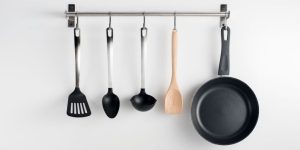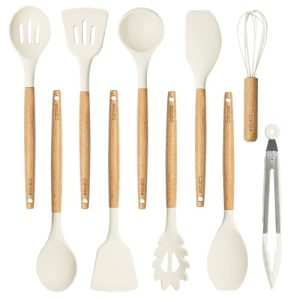Clogged outdoor drains can turn your yard into a messy, smelly problem fast. If water isn’t flowing freely, it can cause flooding or damage to your property.
But don’t worry—you don’t need to call a plumber right away. With a few simple steps, you can clean your outside drains yourself and keep everything running smoothly. Ready to save time, avoid costly repairs, and protect your home? Let’s dive into how you can get your outdoor drains clear and working like new.

Credit: www.reddit.com
Tools And Materials Needed
Cleaning drains outside needs the right tools and materials for best results. Essential items include a gloves to protect hands and a drain snake to clear clogs deep inside. A bucket helps catch dirty water, while a garden hose can flush debris away. A screwdriver might be needed to remove drain covers.
Other helpful materials include drain cleaner for tough blockages and a wire brush to scrub the drain walls. Having a flashlight is useful to see inside dark drains. Finally, keep some old rags or towels handy for cleanup.

Credit: www.youtube.com
Identifying Common Drain Clogs
Common clogs in outdoor drains often come from leaves, grass clippings, and dirt. These materials block water flow and cause slow drainage. Small stones or gravel can also get stuck, making water hard to pass through.
Sometimes, tree roots grow into drain pipes, causing serious blockages. Oil, grease, or soap residue from outdoor cleaning can stick inside pipes too. It is important to know what type of clog is present before cleaning.
- Leaves and organic debris
- Soil and small stones
- Tree roots invading pipes
- Grease and soap buildup
Safety Precautions Before Cleaning
Wear protective gloves to avoid cuts or infections. Use safety goggles to protect eyes from splashes. Ensure the area is well-ventilated to avoid inhaling fumes from cleaning products. Avoid using harsh chemicals that can damage pipes or harm plants nearby.
Keep children and pets away from the drain area during cleaning. Use tools carefully to prevent injuries. Check for any signs of damage or cracks in the drain before starting work. Have a first aid kit ready for emergencies.
Clearing Surface Debris
Clear away leaves, twigs, and dirt from the drain surface. This prevents blockages and water buildup. Use gloves to protect your hands.
A stiff brush or broom works well to sweep off debris. For stuck dirt, rinse with a garden hose gently. Avoid high pressure to protect the drain.
Regular cleaning keeps drains working and avoids bad smells. Do this often, especially after storms or heavy winds.
Using A Drain Snake
Choose a drain snakebased on the drain size and clog type. Use a smaller snakefor narrow pipes and a larger onefor bigger drains. Manual snakes suit minor blockages, while powered snakes work better for tough clogs.
Hold the snake firmly and insert it slowly into the drain. Turn the handle clockwiseto push the snake deeper. Keep turning until you feel the clog break or loosen. Pull the snake out gently, removing debris.
Flushing Drains With Water
A high-pressure hose can clear outside drains fast. Attach the hose to a water source. Insert the nozzle into the drain. Turn on the water and increase the pressure. The strong water force pushes debris away. This method works well for small blockages. Remember to wear safety goggles. Water can splash back, so stay alert. Keep children and pets away from the area.
A wet/dry vacuum can help clear drains. First, set the vacuum to “wet mode”. Place the hose over the drain opening. Turn on the vacuum and let it suck the debris. This removes water and dirt from the drain. Make sure the vacuum is plugged in safely. Check the vacuum’s tank regularly. Empty it when it’s full. This helps maintain suction power. Be cautious with electrical parts near water.
Natural Cleaning Solutions
Pour baking soda and vinegar down outdoor drains to break up dirt and grime naturally. Rinse with hot water to clear blockages and keep drains flowing smoothly. Regular cleaning prevents buildup and odors without harsh chemicals.
Baking Soda And Vinegar
Baking soda and vinegar make a great cleaning team. Pour half a cup of baking sodainto the drain. Follow it with a cup of vinegar. Watch it fizz and bubble. This helps break down grime and dirt. Wait for 15 minutes. Then, flush with hot water. Repeat if needed for stubborn clogs.
Enzyme Cleaners
Enzyme cleaners are gentle and effective. They use natural enzymes to eat away at clogs. Pour the cleaner down the drain. Let it sit overnight for best results. Rinse with warm water in the morning. These cleaners are safe for the environment. They are also safe for septic systems. Use regularly for a clean drain.
Preventing Future Clogs
Keeping drains clear helps avoid future clogs and water damage. Regular cleaning removes dirt and leaves that block pipes. Check drains every few weeks to spot problems early. Use a hose or a plumber’s snake to clear small blockages.
Drain covers stop large debris from entering and causing clogs. Choose covers that fit well and are easy to remove for cleaning. Clean the covers often to keep water flowing smoothly.
- Clear leaves and dirt around drains regularly.
- Install mesh drain covers to catch debris.
- Flush drains with water after heavy rain.
- Remove covers and clean them monthly.
- Use simple tools like a hose or drain snake.
When To Call A Professional
Call a professional if water drains very slowly or not at all. Persistent bad smells from outside drains need expert help. If water backs up and floods the area, do not delay calling someone. Strange noises from the drainpipes can signal big problems. Avoid using harsh chemicals yourself; a pro has safe tools. Large tree roots near drains often cause blockages that require special equipment.
Here are signs that a professional is needed:
- Water pooling around the drain after rain.
- Repeated clogs despite cleaning efforts.
- Visible damage or cracks in drain pipes.
- Unusual odors that last for days.
- Drain sounds like gurgling or bubbling.

Credit: www.reddit.com
Frequently Asked Questions
How Do I Unclog Outdoor Drains Quickly?
Use a drain snake or high-pressure water to clear blockages. Remove debris manually if visible. Avoid chemical cleaners to protect plants and pipes.
What Tools Are Best For Cleaning Outside Drains?
A drain snake, garden hose, gloves, and a bucket are essential. These tools help remove debris and flush out dirt effectively.
How Often Should Outdoor Drains Be Cleaned?
Clean outdoor drains at least twice a year, especially before rainy seasons. Regular cleaning prevents clogs and water damage.
Can Natural Cleaners Help Clean Outside Drains?
Yes, a mixture of baking soda and vinegar can break down grime naturally. It’s eco-friendly and safe for surrounding plants.
Conclusion
Cleaning outside drains keeps water flowing and prevents clogs. Regular care stops bad smells and standing water. Use simple tools like a plunger or a drain snake. Rinse the drain with water after cleaning. Watch for leaves and debris often.
This small effort saves big repair costs later. Stay consistent, and your drains will work well longer. Clean drains mean a cleaner, safer home environment. Take a few minutes each month to check and clear drains. It’s easy and helps avoid bigger problems down the road.

I’m Abby Lu, a passionate home cook who loves simplifying everyday meals. At PlugChef.com, I share product reviews and cooking guides to help you find the best tools for your kitchen.











